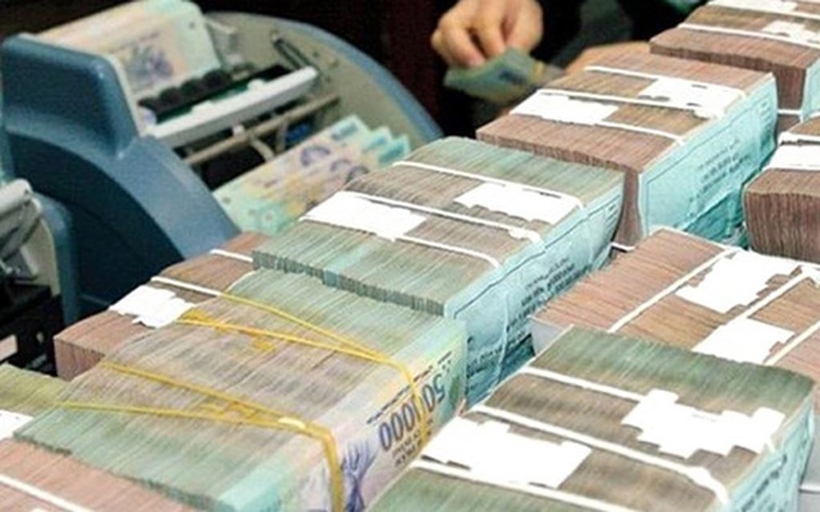Common signs of suspicious activity regarding anti-money laundering in Vietnam
What are the common signs of suspicious activity regarding anti-money laundering in Vietnam?

Common signs of suspicious activity regarding anti-money laundering in Vietnam (Internet image)
Regarding this issue, LawNet would like to answer as follows:
1. Common signs of suspicious activity regarding anti-money laundering in Vietnam
- The customer refuses to provide information or provide inaccurate, inadequate and inconsistent identities.
- The customer induces the reporting entity not to report the transaction to the competent state authority.
- It is unlikely to identify a customer based on the information provided by the customer or a transaction relating to an anonymous party.
- The phone number provided by a customer does not work or exist after an account is created or a transaction is performed.
- The transaction is performed by order or according to the authorization obtained from entities and persons defined in the Greylist.
- The transaction can, based on the customer’s identification information or through examination of economic and legal concepts thereof, determine the connection between the parties involved and criminal activities or the association with the entities or persons appearing on the Greylist.
- The natural or legal person participates in a transaction at great expense, which is deemed as incommensurate with their business situation and income.
- The customer requests the reporting entity to carry out a transaction without conforming to the procedures and processes required by law.
(Article 27 of the Anti-Money Laundering Law 2022)
2. Types of signs of suspicious activity regarding anti-money laundering in Vietnam
2.1. Signs of suspicious activity in banking sector
- There is a dramatic change in the volume of transactions performed on an account; money flowing in or out from an account quickly; despite the great volume of transactions in a day, the balance remaining in an account is tiny or equals zero.
- A small amount of money is transmitted for a short while from different accounts to an account or vice versa; money is transmitted from or to multiple accounts; parties involved do not care about transaction fees; a lot of transactions, each of which is close to the great value requiring to be reported, are performed.
- A letter of credit and other trade finance facilities of which value is unusually great, and the proportion(s) of discount to value is high, are used.
- A customer has access to multiple accounts opened by credit institutions or foreign bank branches in a geographic area different from the place where he/she resides, works or does business.
- A customer’s account suddenly records a usually large amount of funds that are deposited or transferred.
- A large amount of funds are transmitted overseas from a company’s account after that account receives multiple small amounts that are wired or in form of cheques or drafts.
- A foreign-invested economic entity transmits money abroad after receipt of investment capital, or remits money overseas despite not allowed to do so according to its scope of business; a foreign investor transmits money abroad promptly after receiving funds from abroad to the account opened at any credit institution or foreign bank branch doing business in Vietnam.
- A customer frequently converts low-value banknotes into high-value ones.
- A transaction involving depositing or withdrawal of funds is performed by an entity or person creating illegal assets as a result of criminal activity that has been named on the mass media.
- A customer requests the lending of a permissible maximum amount for which it/he/she may provide security by using a life insurance policy of which total premium is paid on a lump sum basis promptly after payment of insurance costs.
- Information about the origin(s) of asset(s) used as financing, investment(s), lending or entrusted investment of a customer is not clear or transparent.
- Information about the origin of property put up as collateral of a customer requesting the lending of funds is incomplete and inaccurate.
- There is a suspicion that a customer uses a personal account for conducting a transaction relating to the structure of a legal person, or acting on behalf of other natural person to perform a transaction.
- Online transactions are performed through accounts that frequently change in terms of login devices or internet protocol (IP) addresses abroad.
(Article 28 of the Anti-Money Laundering Law 2022)
2.2. Signs of suspicious activity in payment intermediary sector
- There is a dramatic change in the volume of transactions performed on an e-wallet; money flowing in or out from an e-wallet quickly; despite the great volume of transactions performed a day, the balance remaining in an e-wallet is tiny or equals zero.
- A customer frequently tops up or recharges an e-wallet with a lot of small replenishments, then carries out a transaction involving transferring a large amount of money to an e-wallet or withdrawing a large amount of money to its/his/her bank checking account or debit card or vice versa.
- Transactions involving transfer of small amounts of money from various e-wallets to an e-wallet or vice versa occur in a short while; a transaction involves transfer of an amount of money to different e-wallets; parties concerned in a transaction do not care about transaction fees; a lot of transactions, each of which is close to the great value requiring to be reported, are performed; an e-wallet records a lot of transactions involving transfer of funds to another e-wallet in a unusually short time of origination of each transaction.
- A customer’s e-wallet unexpectedly is credited with an unusually great top-up amount.
- A transaction involving crediting or debiting money to or from an e-wallet account or transferring money between e-wallets is performed by an entity or person obtaining illegal assets as a result of criminal activity that has been named on the mass media.
- There is a suspicion that a customer uses a personal account for conducting a transaction relating to the structure of a legal person, or acting on behalf of other natural person to perform a transaction.
- A customer is the merchant that still records any transaction even though the inspection proves that its official website or office has been closed.
- Online transactions performed through e-wallets change constantly in terms of login devices or IP addresses.
- A customer regularly uses login devices or IP addresses abroad to have access to an e-wallet or perform transactions on an e-wallet; frequently uses a login device or IP address to carry out transactions on various e-wallets of which holders are different.
(Article 29 of the Anti-Money Laundering Law 2022)
2.3. Signs of suspicious activity in life insurance business sector
- A customer requests the purchase of an insurance policy of unusually great value, or demands a lump-sum payment of insurance premiums if such payment is not permitted for the requested insurance product, despite the fact that its/his/her existing insurance policies are of low value and require the payment of insurance premiums in instalments.
- A customer requests the underwriting of an insurance contract for which each instalment of insurance premium paid does not match its/his/her current income.
- An insurance buyer pays the insurance premium through an account other than its/his/her account or the account of its/his/her authorized entity or person, or by bearer negotiable instruments.
- An insurance buyer requests replacement of the nominee beneficiary by a natural person who does not have a clear relationship with him/her.
- A customer accepts all unfavorable conditions not relating to his/her age, health condition; a customer requests the purchase of insurance for indefinite purposes; conditions and value of an insurance contract are contradictory to his/her needs.
- An insurance buyer waives the insurance contract promptly after purchase and requests transfer of paid insurance premiums to a third party; a customer regularly participates in insurance and transfers the insurance contract to a third party.
- A customer is a company where the number of insurance contracts for its employees or the amount of insurance premium in an insurance contract under which insurance premiums are paid on a lump-sum basis is unusually increased.
- An insurance company frequently pays a large amount of money for insurance to the same customer.
(Article 30 of the Anti-Money Laundering Law 2022)
2.4. Signs of suspicious activity in securities sector
- Suspicious transactions involving unusual purchase and sale of securities that occur within one or several days are performed by an entity or person.
- A securities company conducts money transfers unfit for securities business activities.
- A nonresident transfers a large amount of money from a securities trading account or discharges an investment entrustment agreement to move funds out of Vietnam.
- A customer regularly sells all stocks on the portfolio and requests a securities company to sign a payment order to enable its/his/her cash withdrawals from a commercial bank.
- A customer makes unusual investments in various types of securities that are not favorable in a short while.
- A customer's securities trading account unexpectedly is credited with a large amount of money unfit for the customer’s financial capability.
- A transaction involving the purchase or sale of securities is funded by an investment fund set up in a country or territory at high risk of money laundering.
- A foreign investor residing in a country or territory (or jurisdiction) at high risk of money laundering contributes capital to set up an investment fund or investment company in Vietnam.
(Article 31 of the Anti-Money Laundering Law 2022)
2.5. Signs of suspicious activity in prize-awarding game business sector
- A customer is suspected of keeping on losing games played at a prize-awarding business (or amusement arcade).
- After buying an unusually large number of coins or tokens at a casino or prize-awarding game center (or amusement arcade), a customer does not play or plays with a very small portion of the bought coins or tokens, and then redeem them for cash, cheques, bank drafts, or money transferred to other accounts.
- A customer requests the transfer of a winning or prize to the third party with whom he/she does not have any clear relationship.
- A customer adds more cash or cheques to the winning or prize, and requests a prize-awarding game center to change them into a cheque that has an unusually large value.
- A customer repeatedly requests a casino or prize-awarding game center to redeem a large amount of coins or tokens for cash within a day.
- A customer repeatedly requests a third party to buy an unusually large amount of coins or tokens and place a bet on his/her behalf within a day.
- A customer repeatedly buys lottery tickets, betting tickets or coins or tokens to the extent that they almost reach the permissible maximum limit of a large transaction that should be reported.
- A customer buys a winning lottery ticket of great value from other person.
(Article 32 of the Anti-Money Laundering Law 2022)
2.6. Signs of suspicious activity in real estate business sector
- Real estate transactions are the authorized transactions performed without reference to any legal basis.
- A customer does not care about the price of the real property or transaction fees payable.
- A customer fails to provide information relating to the real property in question or does not wish to provide further information about his/her personal background.
- The price involved in a transaction between parties does not match the market price.
(Article 33 of the Anti-Money Laundering Law 2022)
- Cases of land rent exemption and reduction under the latest regulations in Vietnam
- Economic infrastructure and social infrastructure system in Thu Duc City, Ho Chi Minh City
- Regulations on ordination with foreign elements in religious organizations in Vietnam
- Increase land compensation prices in Vietnam from January 1, 2026
- Determination of land compensation levels for damage during land requisition process in Vietnam
- Who is permitted to purchase social housing according to latest regulations in Vietnam?
-

- Guidance on gathering, handling and analysis of ...
- 12:00, 21/09/2024
-

- Emergency response and search and rescue organizations ...
- 10:29, 11/09/2024
-

- Handling of the acceptance results of ministerial ...
- 09:30, 11/09/2024
-

- Guidance on unexploded ordnance investigation ...
- 18:30, 09/09/2024
-

- Sources of the National database on construction ...
- 16:37, 09/09/2024
-

- Notable new policies of Vietnam effective as of ...
- 16:26, 11/04/2025
-
.Medium.png)
- Notable documents of Vietnam in the previous week ...
- 16:21, 11/04/2025
-
.Medium.png)
- Notable documents of Vietnam in the previous week ...
- 16:11, 02/04/2025
-
.Medium.png)
- Notable new policies of Vietnam to be effective ...
- 16:04, 02/04/2025
-
.Medium.png)
- Notable new policies of Vietnam effective from ...
- 14:51, 21/03/2025

 Article table of contents
Article table of contents
